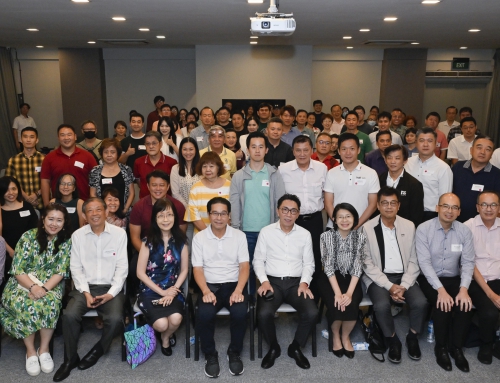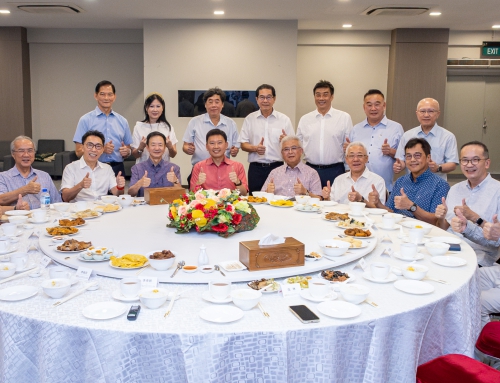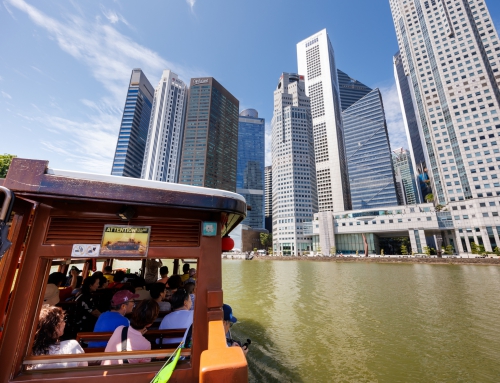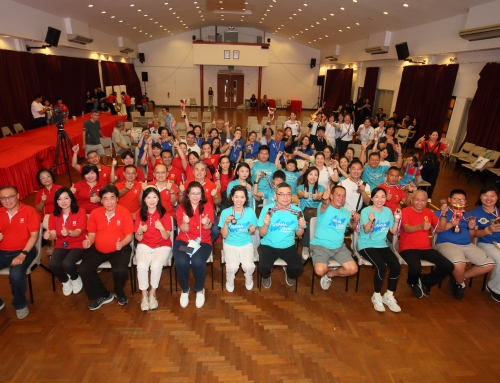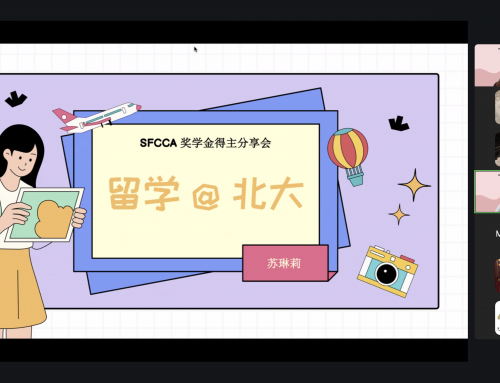Invited by the Penang Chinese Clan Temple Committee and the Penang Chinese Clan Associations Youth Committee, Deputy Secretary General of SFCCA Mr Lee Peng Shu led a 24 people delegation on 17th July 2008 to attend the South East Asian Clan Associations Exchange Meeting.
More than 400 representatives from eight countries in Southeast Asia gathered in Penang to exchange their views, share experiences, and discuss the possibilities for cooperation in cultural, economic, social, tourism and trade aspects. This is another big gathering of clans in Southeast Asia, after last year’s meeting held by the Thai Chinese Clans Association in Bangkok.
The three-day exchange meeting kicked off on the morning of 18th July 2008 at the Hong Yuan University Lecture Hall in Penang. Singapore Federation of Chinese Clan Associations, the Thai Chinese Clans Associations, Laos Pakse Chinese Council, Vietnam Ho Chi Minh Jiang Xia Tang Huang Clans Ancestral Hall, Cambodia Xie Clan Association, Filipino-Chinese Grand Family Association, Indonesia Chinese Clan Social Association and the Penang Chinese Clans Committee attended this event.
The Ancestral temples of Chinese families have always been the core of maintaining familial bonds.
Protecting ethnic interests to serving the community, this change in nature has become part of the history of Chinese clans.
During the opening ceremony, director of this meeting, Dato Sri Ye Liang Fa, said that in the times of globalisation and rapid development of the internet, the important of ancestral temples have not been eroded. Globalisation has brought together more people of the same family and culture. Bonds build through blood-related relationships can contribute/ serve the ethnic group and society better
Dr Surin Pisuwan, Secretary-General of Southeast Asia, also attended the opening ceremony. Besides his opening speech, he also gave a keynote presentation entitled “Immigration from China to Southeast Asia and the Establishment of the Chinese Community in Southeast Asia”.
Through the course of the event, participants visited Chung Ling Private High School to understand the formation of an education system for Malaysian Chinese. They also visited local historical sites to learn more about the history and culture.
The main organisers even planned an academic seminar based on the topic of the “evolution of the Chinese community in Southeast Asia”, inviting scholars to discuss in depth, and Professor Liao Jianyu, the curator of the Chinese American Pavilion, was also one of the invited scholars.
“Let all places with Chinese people become better because of the presence of Chinese people” is the common aspiration of all the participants. The meeting was held at the Red Rock Hotel Penang on 20th July 2008 and representatives from various countries gave an overview of the history, politics, economy and culture of the Chinese in the respective countries.
Mr Lee Peng Shu, Deputy Secretary-General of the Singapore Federation of Chinese Clans, introduced the history, current situation and future of the Singapore Chinese community in Singapore. He emphasised that Singapore Chinese Associations advocate for benefits within the institutionalised system, strive for peace and promote traditional Chinese culture. His speech won warm applause from the audience.
In addition to the exchange meeting, Mr Chen Zhenfeng, Deputy Chairman and Mr Chen Shikun, manager of Xingzhou Jingchuan Association, Mr Shen Shida, Chairman of Teochew Shen’s Federation and the honorary chairman of Yingchuan Public Office took the lead to participate. Mr Lin Wendan, Secretary of the Singapore Federation of Chinese Clans Association and Barte, editor of Yuan magazine also participated the meeting.
It is reported that there are about 165 Chinese clan organisations in Penang, some of which are located in the famous heritage protection area, which has been listed by UNESCO as a “World Cultural Heritage Site”.

